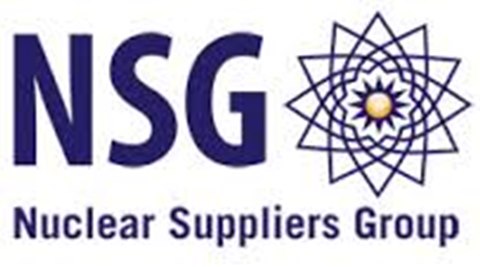By Siddharth Singh
- For years, India has been trying to gain entry into the Nuclear Suppliers Group (NSG), a 48 member grouping that was formed in the aftermath of India’s 1974 nuclear test with the aim of ensuring non-proliferation of nuclear weapons and nuclear technology. From India’s point of view, it was formed to deny India access to sophisticated technology. The 48 members of the NSG include the five nuclear weapon states, US, UK, France, China and Russia. The other 43 are signatories to the Nuclear Non Proliferation Treaty (NPT). India is not a signatory to the NPT which it calls discriminatory.
By declaring a voluntary moratorium on further underground nuclear tests, India has effectively acted in sense and spirit of NPT/CTBT by steering its program only as a minimum deterrence and pledging NFU (No First Use) unless faced with an attack of weapons of mass destruction (WMD), India has established itself as a responsible nuclear state. India’s nuclear doctrine is unique. It is non-offensive, non-proliferative and only for deterrence.
India has always stated that for its admission into NSG, there has been enough precedents to get membership without having acceded to NPT. France was one example; Argentina and Brazil, which were invited to join NSG, before signing on to NPT were the others.
India has acquired high-level expertise in safe utilization of nuclear technologies; mastered effective control of the associated consequences of its civilian usage and prepared to accept full-scale IAEA safeguards.India has already acquired high-level expertise in the peaceful use of nuclear energy in various sectors. India’s membership of the NSG will not only benefit it but also it will also encourage civil nuclear trade globally without compromising on world peace and harmony.
Some of the advantages for India joining NSG group are:- Clean Energy: India is a growing nation whose need for energy is massive. India has set goal for itself about sourcing 40% of power from non- fossil sources. Now in order to fulfil this goal, Nuclear energy can play very important role as India now wants latest technology in this field and membership of NSG means access to all these technologies.
- Boost to Make in India: ‘Make in India’ is a stated objective of the Modi government and developing an efficient and secure nuclear-based manufacturing and research ecosystem will go a long way in establishing innovation in advanced technologies. NSG membership will allow for sharing and joint research in advanced technologies that can then be exported to other member states.The moment India gets a place in the NSG group, it is definitely going to help indigenous Indian companies which have always worked in isolation as every-time India conducts nuclear tests, it is slapped with international sanctions. Make in India will help in indigenization of nuclear technology from the various deals under which nuclear reactors are going to be built in India to be used in India as well as for selling to other countries. Once India enters into NSG, this initiative will be implemented better, creating not only employment but technology development as well.
- Getting State of art technology:The membership will help India in access to technology for a range of uses from medicine to building nuclear power plants for India from the NSG which is essentially a traders’ cartel. India has its own indigenously developed technology but to get its hands on state of the art technology that countries within the NSG possess, it has to become part of the group.
- India will have its say in matters concerning nuclear energy.
- Indian companies like L&T, Walchandnagar (Who have experience with making nuclear power plants), will find new markets overseas.
- Member nations will assist India in disposal of its nuclear wastes.
- It will pave the way for India’s entry into other establishments like “The Australia Group” and “The Wassenaar Arrangement”
- It will also help India to make a stronger bid for UNSC seat.
If the NSG was able to grant a waiver to India in 2008 on the basis of its past performance, it should have no objection to admitting the country as a member this time as well because of its record in adhering to all its commitments over the last eight years. It is, however, obvious that the decision on 23-24 June in Seoul will be taken by some countries on political considerations rather than on merit. All eyes are now on Indian Prime Minister Narendra Modi’s meeting Chinese President Xi Jinping in Tashkent in this week on the side-lines of the Shanghai Cooperation Organisation summit, where he is likely to discuss India’s NSG bid.
(The views expressed are the author's own and do not necessarily reflect the position of the organisation)

